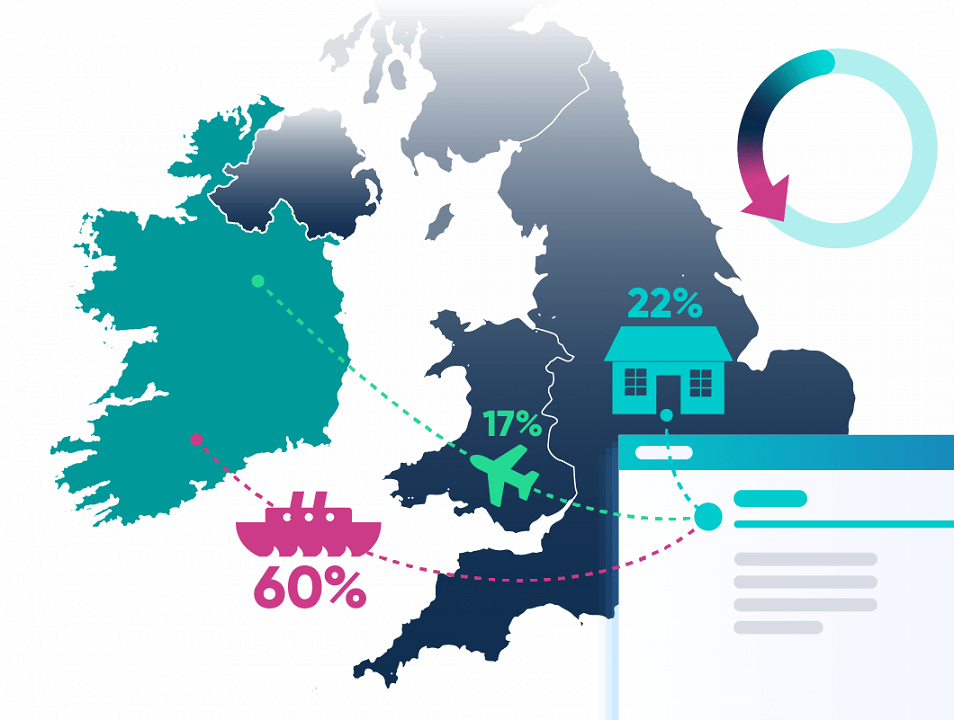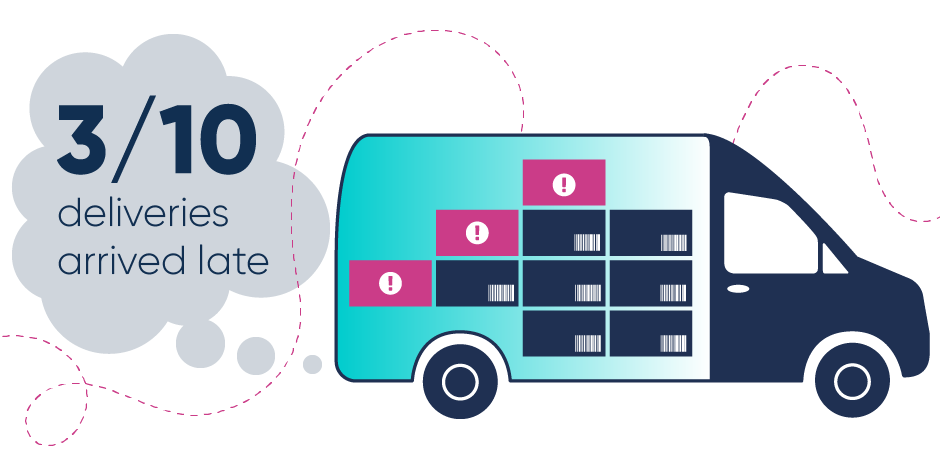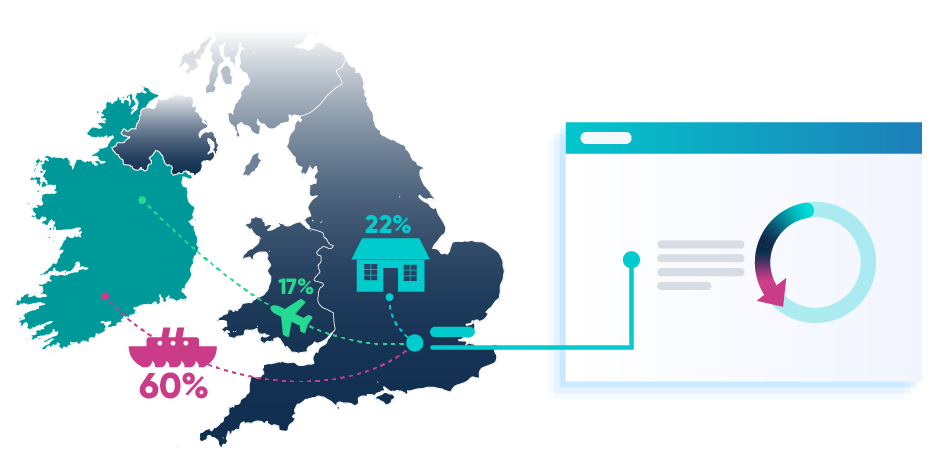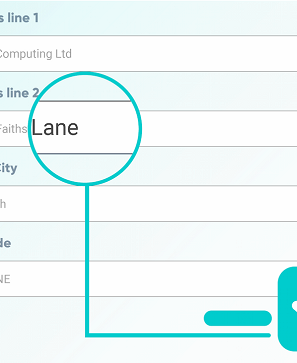
Knowledge Base Eircode: what do Irish consumers think?
We surveyed online shoppers in the Republic of Ireland to discover what they thought about the introduction of Eircode
Eircode was launched in 2015, and gives every residence in the Republic of Ireland a unique 7-character identifier. Up to 600,000 addresses in Ireland are non-unique, presenting a challenge to logistics companies, who previously had to rely on directions and local knowledge to get deliveries where they needed to be.
Eircode can be used on online forms in exactly the same way as a UK postcode to accurately identify an Irish address to make the delivery of goods and services to households easier. As each code is unique to each property, Eircodes also help guard against fraud.
We surveyed 200 Irish consumers in August 2017 who have shopped online in the last year to see what they thought about Eircode.1 Many retailers have avoided asking for Eircodes as part of the online checkout process during the early roll-out of the system, but our research shows that many Irish consumers are beginning to equate Eircodes with accurate location services and successful deliveries.
In general, shoppers in Ireland are overwhelmingly positive about shopping online, with 90% of people describing their experience at the checkout as good or excellent.
My house is hard to find without an Eircode
However, this overall enthusiasm doesn’t extend to the delivery process, with 3 in 10 of all respondents reporting problems with one or more deliveries of online shopping in the last 12 months.

Of those that had delivery problems, just over three-quarters had issues with just one or two deliveries, but 7% of respondents reported that they had problems with over 10 deliveries in the past 12 months alone.
The most common delivery problem in Ireland is deliveries arriving late. Of those who reported problems, 3 in 10 said their parcel had arrived late, and almost a quarter said their delivery did not arrive at all.
As I live in the countryside, it pinpoints my exact address
Shockingly, 12% of shoppers reported that the courier could not find their address.
We discovered that the majority of Irish consumers also turn to UK retailers for online shopping, with 83% buying online from UK retailers.
Increased choice is the main advantage to shopping from the UK according to nearly half of those who shop with UK retailers.
Cheaper prices are another key incentive, cited as an advantage by 3 in 10 shoppers overall, and over half of all shoppers in the 45 – 54 age bracket
[Eircode will] reduce the chance of mistakes that the parcel will be sent to a different place with similar name.
However, those price savings are offset by the cost of delivery, which is the main disadvantage of shopping from UK sites according to nearly 3 in 10 shoppers.
A quarter of shoppers also complain that some retailers don’t deliver to the Republic of Ireland at all – potentially a huge missed opportunity for UK retailers.
If I misspell my address occasionally, the Eircode can be helpful, because every house has its own unique code.
When it comes to delivery, Irish customers are again focused on the cost, with just over 60% choosing to have their shopping delivered by the cheapest shipping method, even if it’s slower. Only 17% will pay extra for an expedited service. 22% of Irish customers chose to use a virtual address service either because the retailer doesn’t deliver to Ireland, or to save on delivery costs.

Retailers who believe that Eircode is considerably less useful and less well-adopted than the UK’s postcode system could be wrong, as our research shows that nearly 7 out of 10 online shoppers aged 18 or over know their Eircode, with 4 out of 10 using it regularly.
Of those who know their Eircode, 70% provide their Eircode when shopping online with Irish retailers. When shopping with UK retailers, 68% provide their Eircode.
Despite many hiccups in its introduction, the consumer perception of Eircode is generally positive, with 7 out of 10 people commenting positively about its effect on online shopping and deliveries. The most enthusiastic demographic are those aged 35 – 44, with almost 80% making positive comments about Eircode. Not everyone is positive, but many people are willing to keep an open mind about Eircode, with one respondent stating: “I do not provide my Eircode because I do not think it helps at this time”. However, the benefits of Eircode are becoming well known, and positive responses commented on the accuracy and precision of unique Eircodes making it easier and faster for couriers to get deliveries to customers. Some consumers also remarked that Eircode lookup was easier for them too, as it was quicker than typing an address.
It’s a quick and easy way to give sellers an accurate location of where you want your goods delivered plus it saves time! You don’t need to type in a full three lined address when you have an Eircode!
How can UK retailers support their Irish customers, and make their deliveries as speedy and accurate as possible? Eircode lookup functions in the same way as postcode lookup – a customer enters their Eircode, and the address form is pre-filled with their address. What’s more, as nearly every Eircode is unique, there are fewer tricky and cumbersome drop down menus or lists of addresses to work into a form design. Once the Eircode is entered, the customer’s unique address appears instantly.
Find out how to integrate Eircode lookup in your checkout with Postcoder.
-
Research details: 200 online shoppers surveyed, August 2017, 66% male, 34% female, all living within the Republic of Ireland. ↩



